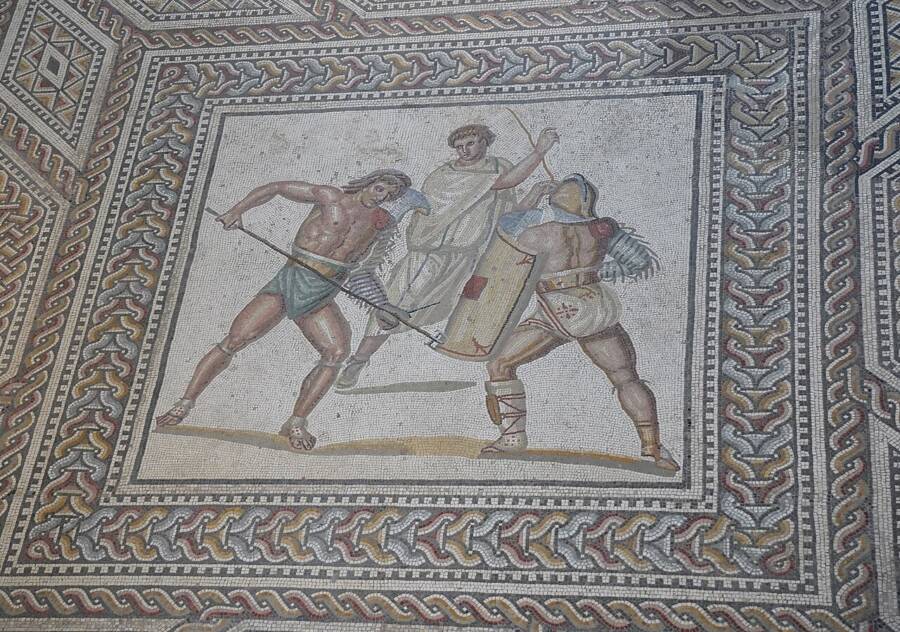Flamma, The Roman Gladiator Who Refused His Freedom

TimeTravelRome/Wikimedia CommonsA gladiator mosaic from the Roman villa Nennig.
Decades after Spiculus and Marcus Attilius made their names in the arena, another gladiator rose to fame. His name was Flamma, and he’s remembered for both his fighting abilities and his disinterest in freedom.
Flamma was born in Syria, but the details of his early life are lost to time. He began to appear in the historical record during the reign of the Roman emperor Hadrian (117 to 138 C.E.). During that time, Flamma’s fighting prowess made him a favorite of the gladiator-loving crowd.
He battled mostly in Sicily, where his gravestone records he fought 34 times, won 21 times, and tied nine times. But it wasn’t just Flamma’s abilities in the arena that made him famous.

Matthias Süßen/Wikimedia CommonsThe ruins of an amphitheater in Catania, Sicily.
As his gravestone notes, Flamma also “won reprieve four times.” When a gladiator won a match, he was often offered a rudis, a wooden sword that allowed him to go free.
Flamma was offered the rudis four times, but he declined it every time. He apparently preferred fighting over freedom.
He died at the age of 30. For most people, this would be young. But Flamma outlived many of his fellow fighters. He remained respected by other gladiators until his death, and his gravestone ends with the line: “Delicatus (a gladiator) made this for his deserving comrade-in-arms.”





